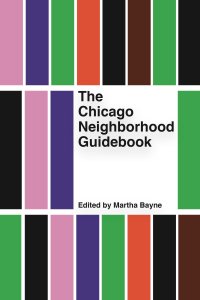In late fall 2019, I was nearing the end of my first semester in an MFA Creative Writing program, when students still met in classrooms. My literature class assignment that week, as it was most weeks, was to read two essays. One was “The Love of My Life” by Cheryl Strayed. The other, I don’t remember.
Week after week, we had been assigned readings about death, illness, divorce, disfigurement, violence, and more death. I remember seeing Strayed’s name on the syllabus and thinking, okay, lighter material ahead. I had devoured her memoir, Wild, and the movie that followed. Wild wasn’t exactly a comedic romp, but Strayed’s account of hiking the Pacific Northwest Trail after losing her mother to cancer was extraordinarily interesting to me and more my speed than the darker, heavier material we discussed in class so far.
Then I actually read “The Love of My Life.”
It punched me in the gut harder than any other piece we’d been assigned. As I read Strayed’s essay, about the years leading up to, and immediately following, her mother’s death, I felt a pain way too close to home.
I entered an MFA Creative Writing program to write about my personal life experiences with health and other issues. My health, or lack thereof, has radically changed my life in recent years. All around me, students wrote about race. Abuse. Sexuality. Immigration. Gender. Identity. Loss. And they read their stories aloud without so much as a crack in their voices. How? I wondered in my hard, uncomfortable chair in class. How can you remain so still when unearthing such deep topics?
I had never written about my mother, other than a dedication in a published book. I hadn’t planned on writing about her, either. To bring that to the surface, even in everyday conversation, was still too much to bear. Too private. Too soon.
As students went around the room, dissecting Strayed’s tortured essay about her acute grief, it took everything I had not to burst into tears as my own grief was brought to the surface. The discussion was too polite, I thought. Too detached. As several students offered their insights in the minutes that crawled forward, it became clear to me: No one in this room has ever lost the love of their life. No one gets this piece. No one.
Was I momentarily smug in my solidarity with the author? Or just not as good an actor as someone else living with grief, I thought.
As the polite conversation continued, I pressed my lips tighter and tighter and prayed that I’d make it to the 10-minute break without giving way to the tears that threatened the calm class discussion. At one point, the conversation steered toward the author’s intention. Why write this piece? What was Strayed’s intention on baring her soul in written word? One student offered that perhaps Strayed seized on using her life experience to make money, at which point my tears suddenly hardened to rage.
In my mind, I passionately pounded my fists on the table and cried out, “None of you…have EVER…lost…the love of your life!!!!”
But of course, I stayed silent.
I did feel a collective umbrage ripple throughout the room. “It’s okay,” the professor nodded calmly, perhaps anticipating some kind of revolt. I admired her composure and made a mental note to demonstrate a similar neutrality in future experiences as a writing teacher.
To my great relief, another student offered a stern, yet calm rebuttal, something along the lines of, “I highly doubt that Cheryl Strayed went through a tragic loss, ended her marriage, got pregnant, had an abortion, all so she could write a story about it and make money.” I felt grateful that someone was in my emotional ballpark. I had been close to clocking the other classmate, but held my silent self intact.
One of my other professors that semester said that writers sometimes need distance from a life-altering event before embarking on the brave task of writing about it. Strayed wrote her essay several years after her mother’s death. Perhaps that’s why I haven’t had the ability or the will to write about my mother, or the years leading up to, and immediately following, her passing. It is only with distance that I can now assemble the beginnings of words I wanted to say in that class on that night, words that, in my mind, betrayed emotions that only I could understand.
It took major, major courage for Strayed to write that piece. No one. Absolutely no one looks into the darkest, deepest recesses of themselves and offers up its reflection to the public without an enormous amount of bravery, humility, love, and faith. In baring one’s soul, writers risk being misunderstood. Criticized. Analyzed. Insulted. Denounced.
In reading “The Love of My Life,” I knew what Strayed meant when she wrote:
Occasionally I came across people who’d had the experience of losing someone whose death made them think, I cannot continue to live. I recognized these people: their postures, where they rested their eyes as they spoke, the expressions they let onto their faces and the ones they kept off. These people consoled me beyond measure. I felt profoundly connected to them, as if we were a tribe. It’s surprising how relatively few of them there were.
I also understood how someone in acute grief could break up her own marriage. Self-destruct. I didn’t—couldn’t—express my grief in class that night so many months ago for reasons, ironically, that Strayed so eloquently explained in the very essay we were discussing:
She died on a Monday during spring break of our senior year. After her funeral, I immediately went back to school because she had begged me to do so. It was the beginning of a new quarter. In most of my classes, we were asked to introduce ourselves and say what we had done over the break. “My name is Cheryl,” I said. “I went to Mexico.” I lied not to protect myself, but because it would have been rude not to. To express loss on that level is to cross a boundary, to violate personal space, to impose emotion in a nonemotional place.
I understood why Strayed chose her title. The love of your life can have multiple meanings. The person who knew your life story, the person who contributed greatly to your center of gravity, however flawed its existence, is no longer there. The clearinghouse, the warehouse of information, the holder of data, is gone. The person with whom you’ve shared the most complicated, most meaningful relationship of your life so far, has left. Who’s exquisitely documented and stored every memory of you, celebrated you, was there when you needed her most, held your heart, loved you the strongest, is no longer in your life.
You can’t possibly understand this, I wanted to say that night, if you haven’t lost the love of your life. You can’t possibly understand how difficult it could be to talk about it, write about it, expose yourself this way. I find it profoundly courageous. Profoundly human.
Why do we write?
I don’t know what Cheryl Strayed’s exact intentions were in writing “The Love of My Life.” But in reading it, I joined her circle of solemn faces, saw myself in her tribe. In reading her essay, I felt that Strayed knows grief the way I do. It messes with your insides and reorders your life, without ever asking your permission or whether you can handle it. Reading it made me feel less alone, however alone I felt in class that night.
And that, to me, is the reason I write. It’s to connect, to find, to locate similar beings with similar experiences. To let others know they are not alone in their sorrow, their grief, even their joys, in their seemingly isolated experiences.
I plan to contact Cheryl someday, to let her know that she is not alone in her grief, that I can relate to her suffering, though I know thousands, maybe more, have already let this incredible writer know just that. Maybe someday, when I have more distance. When those words, expressed in an email, or said out loud, or even typed out here, won’t make my loss more real.
Strayed, Cheryl. “The Love of My Life.” The Sun. September 2002.


